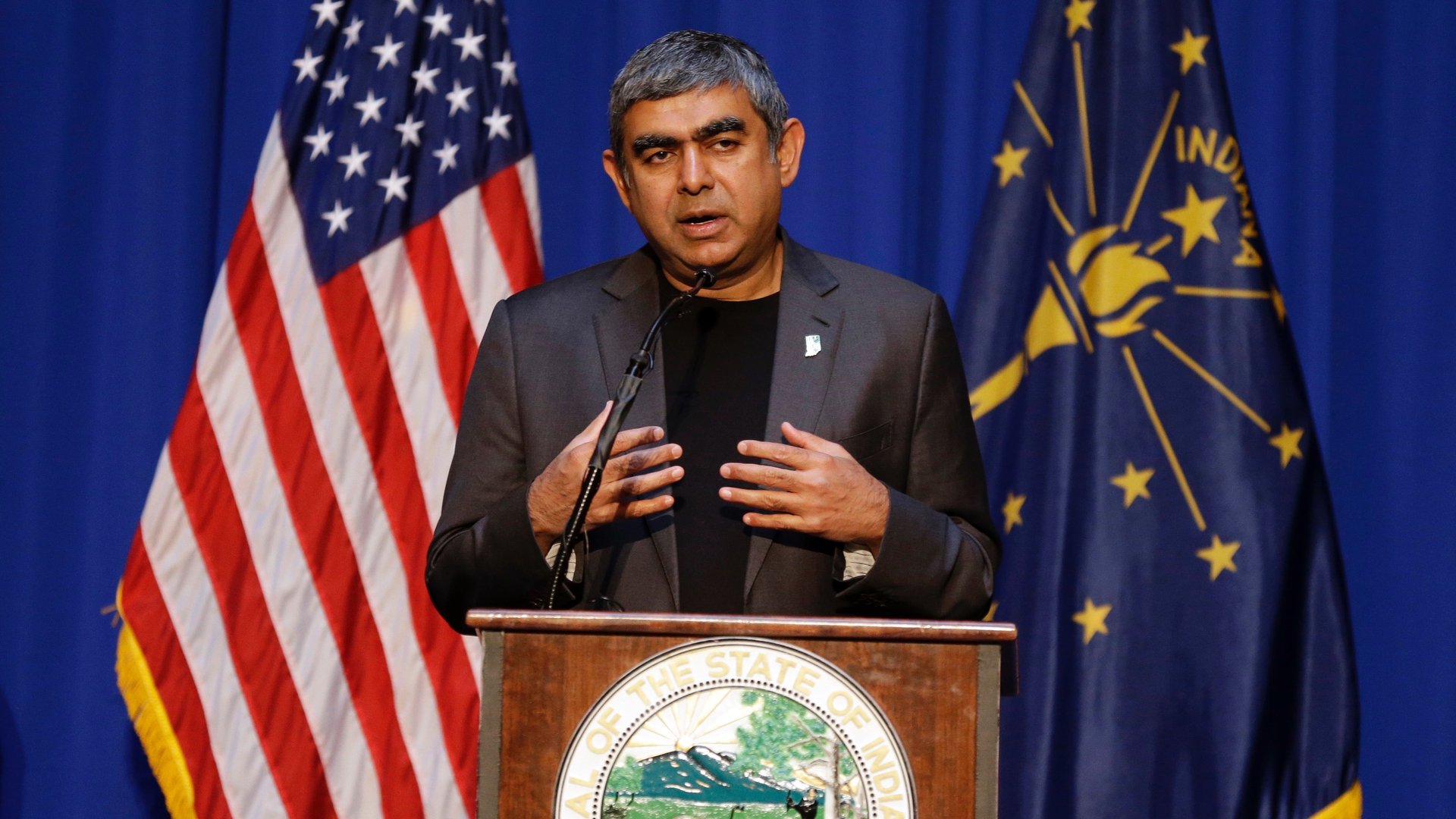Infosys is getting a whole lot of perks for putting America first
Infosys is taking Donald Trump’s “Hire American” order seriously.


Infosys is taking Donald Trump’s “Hire American” order seriously.
Amid the H-1B clampdown, India’s second-largest IT services firm is reducing its reliance on bringing in Indian workers, planning to hire 10,000 American workers over the next two years. On May 23, Infosys announced that it would open its first US-based technology and innovation hub in Indianapolis, the capital of the state of Indiana.
“You can’t spell Indiana without India,” Indiana governor Eric Holcomb told Quartz. “We have worked diligently over the last decade to ensure Indiana is a jobs magnet with a skilled workforce to meet industry demands.”
Infosys is spending $8.7 million on its Indiana venture, which includes a new 35,000-square-foot office. The company intends to add 100 employees this year and 400 next year.
On paper, the plan seems like a blessing for American jobs. However, finding the right employees in a region grappling with a talent crunch can seem like scavenging. Anticipating this problem, Infosys is working on “shrinking the IT skills gap,” CEO Vishal Sikka said. Through the Infosys Foundation, it has trained 2,500 teachers and more than 135,000 students and is also funding the training of over 1,000 public school teachers in computer science this summer.
For choosing to build its new tech hub in Indiana, Infosys, which gets 62% of its revenue from North America, could end up with the largest incentive package in state history. Among the sweeteners are $2.5 million in grants for training new hires and a 10-year property tax abatement. The Indiana Economic Development Corp is also giving the IT company around $15,250 in conditional tax credits for each job the company creates, the Indianapolis Business Journal reported. As long as Infosys hires and retains at least 37 full-time jobs with average wages of at least $45 per hour and 300 jobs paying an average of at least $36 an hour by the end of 2019, it is looking at an incentive package totaling $31 million.